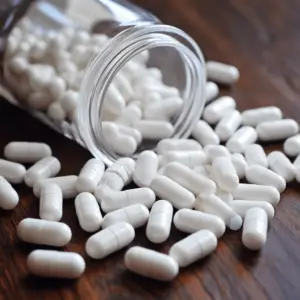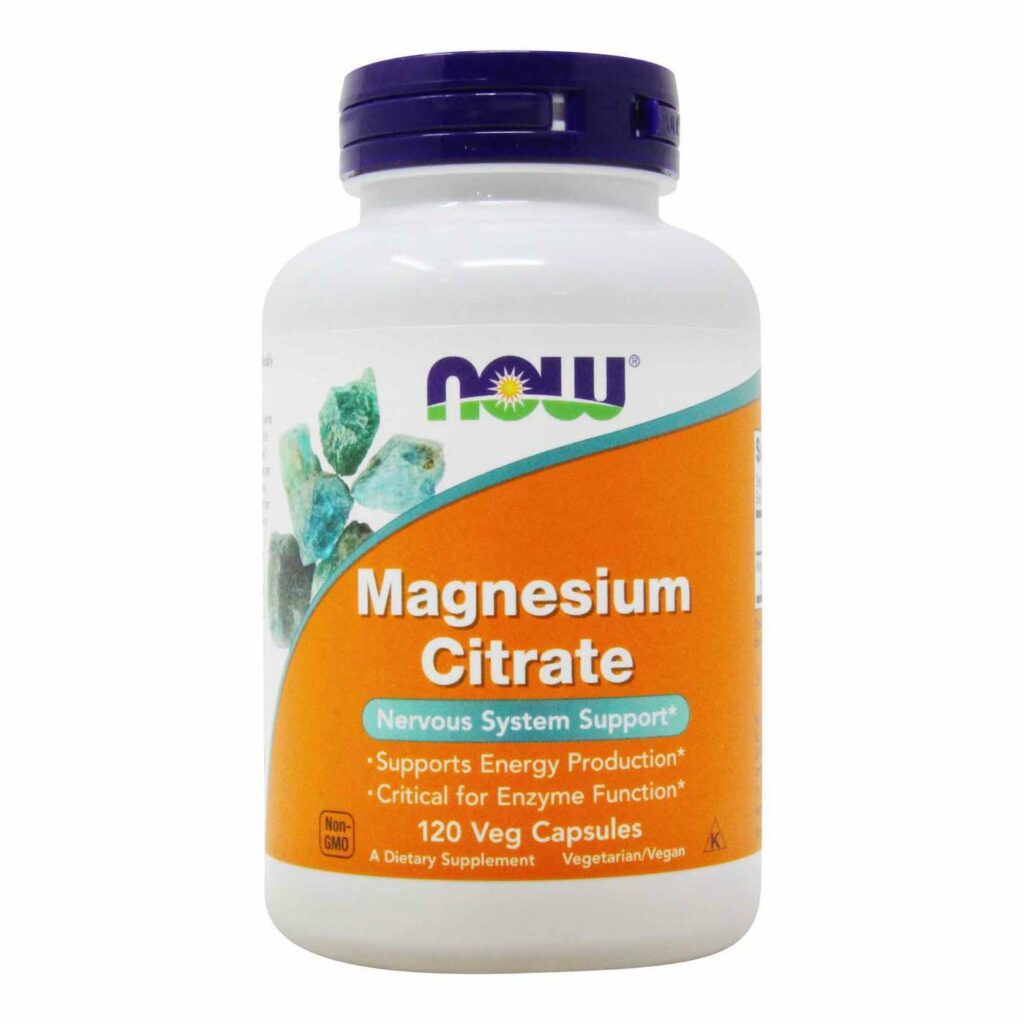Magnesium Citrate is a saline-based liquid or solid preparation that acts as a laxative. It goes by various brand names and does not require a prescription to buy.
Magnesium Citrate is used widely and safely to clear the bowel specifically the large intestine of stool for various reasons.
Constipation, which is a common condition in both adults and children is easily treatable without a hospital visit using a number of home remedies and over-the-counter drugs, Magnesium Citrate being one of them.
If the problem is not severe or chronic, Magnesium Citrate tends to work effectively enough. For children, the dosage is usually 5 ounces while adults can take the whole bottle of 10 ounces.
Magnesium Citrate works best on an empty stomach which means you should wait at least an hour or two after meals to take the preparation.
It takes approximately a half-hour to three hours to take effect emptying the bowel fully and resolving the constipation problem.
Magnesium Citrate is also used to clear the bowel before a major operation or before a colonoscopy.
It is also used by lactating mums after caesarian sections when severe constipation often occurs. Post-operation constipation is also common and Magnesium Citrate can be used under the supervision of a medical professional to clear the problem.
Table of Contents
How Magnesium Citrate Works

As mentioned above, the Magnesium Citrate preparation is saline-based and once ingested, works by osmosis.
Magnesium Citrate should be ingested and followed immediately with about 250 ml to 500 ml of water or a fruit juice.
The solution suctions water into the bowel from surrounding tissue. This increased amount of water in the bowel breaks down the hard stool making it easier for it to move through the bowel and get excreted.
The looser the stool the greater the motility of the bowel. The increased contractions of the bowel force out the stool solving constipation and often any stomach upsets and indigestion issues associated with the constipation issue.
What to Eat After Magnesium Citrate Cleanse
A Magnesium Citrate cleanse causes a welcome sense of relief but can severely dehydrate the body and particularly the digestive tract.
The first things that you should eat should not dehydrate you further but should restore water into your system as well as your electrolyte balance.
Sometimes a cleanse like this can induce a feeling of weakness and some dizziness. Dehydration is the cause of this so naturally, water should be one of the first things you take.
Some orange juice is equally good and recommended to stabilize your electrolytes.
Within the hour, you should take any of the following food items:
- Soups made from:
- Pumpkin
- Squash
- Beets
- Green beans
- Chicken
- Oxtail
- Fruits and vegetables:
- Bananas
- Grapes
- Strawberries
- Blueberries
- Avocado
- Oranges
- Apples
- Pineapples
- Spinach
- Collard greens
- Cabbage
- Lettuce
- Eggplant
- Cucumber
- Zucchini
Whole grain and legumes:
- Lentils
- Beans
- Peas
- Quinoa
- Green grams
- Oats
Nuts:
- Cashews
- Almonds
- Peanuts
- Peanut butter
- Greek or regular yogurt
- Boiled or poached eggs
Foods to Avoid After a Magnesium Citrate Cleanse
Many if not all of these are foods that make dehydration worse and could induce a stomach upset following laxative use.
They include:
- Coffee
- Tea
- Artificial sugars
- Alcohol
- Soft drinks
- Fatty foods such as fries, pizza, burgers, and fast foods
- Processed foods like bread, rice, pasta, pancakes, doughnuts, and bagels
- Processed sugars such as candy and ice cream.
- Dairy products like cheese, milk, ghee, and butter ( Yoghurt is the exception )
Meat should be reintroduced into the diet slowly. The high protein and fiber content can cause stomach problems immediately following a cleanse and consequently cause constipation to recur.
Possible Side Effects of Magnesium Citrate

Such a cleanse while very effective should not be done too often and the recommended frequency is about two to three times a year if necessary at all.
All cleanses should be done infrequently and while some of the adverse effects are known, many of the possible side effects are still unknown which may expose you to severe gastrointestinal issues down the road.
Some of the effects include:
- Dehydration
- Electrolyte imbalance
- Stomach cramps
- Flatulence and bloating
- Nausea and vomiting
- High levels of magnesium in the blood
- A sense of weakness and lethargy
Magnesium Citrate should not be used if the following conditions are present:
If you have any of the following conditions the use of a laxative could exacerbate the problem.
Using Magnesium Citrate while suffering from the following conditions should be done under the guidance of a medical professional:
- Renal failure
- Diagnosed bowel obstruction
- Diabetes
- Surgical abdomen
- Rectal fissures and hemorrhoids
- Intestinal perforation
- Allergic to magnesium
- Low sodium
- Sickle cell anemia
- Myasthenia gravis ( abnormally low muscle tone )
- Gestational diabetes
- Heart problems
- High blood pressure
- Under antibiotic medication
Magnesium citrate is safe for use during pregnancy.
Finally…
It has been suggested that even without the constipation problem to resolve, the occasional laxative or Magnesium Citrate cleanse could be a healthy practice.
At any one point, even the healthy bowel is harboring up to a kilogram or two of fecal matter that has no business just sitting in the intestines.
Our culture of continuous eating several times a day cannot allow the bowel to completely free itself of waste material sufficiently so the body merely lets the waste matter sit in the intestines.
Digestive problems always seem to escalate in the later years of life and this long-term storage of waste material in the bowels which in turn means that many toxins do not get ejected from the body could be part of the problem.
A single cleanse once a year and a maximum of two cleanses a year could be a good way to rid the body of many of these toxins but medics are reluctant to encourage this.
The ignorant and continual abuse of detoxes cleanses and laxatives today has led medical professionals to discourage the use of Magnesium Citrate which has been overused in conjunction with other methods in an attempt to rid the body of food and induce weight loss.


